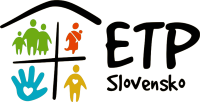Project summary by ETP Slovakia – Center for Sustainable Development
Project summary by ETP Slovakia – Center for Sustainable Development
Project Duration: October 2009 – April 2011
Background: Generational poverty in Slovakia is one of the most serious challenges facing the country, where social exclusion is from participation in decision-making, employment and material resources, and from integration into the broader community. People, especially minority groups, (Roma) often experience a combination of inadequate housing, limited access to social services and utilities, geographic isolation which, coupled with a low level of education, a high school drop-out rate and high unemployment, leads to poverty.
On average unemployment for Roma is 72% but can be as high as 100% among Roma it is approximately 10%, regionally in Central and Eastern Slovakia 20%. Educational and social needs are huge, with an almost complete dependency on social benefits. There is little chance for Roma and some non-Roma families to escape from such generational poverty.
Justification: Traditional solutions are doomed to failure. New approaches are required which treat people not just victims but as participants and problem solvers with local accountability and who are responsible towards themselves, their family and community. The project will promote change by creating bridges among experts and communities – „bridgebuilding“ and building human, social and economic capital in twelve communities and by their transformation into life long learning communities. It has the following innovative elements:
•It is set within existing CCs from where comprehensive service are provided like anywhere in Slovakia
•It addresses „cradle to grave“ challenges, all in ways which are pioneering in Slovakia
•CSWs, other professionals and lay people will all be trained as trainers, thus securing sustainability
•It builds on existing effective Partnerships across the sectors within the chosen localities
•Supports comprehensive integrated local solutions securing socal solidarity. </p>
The Project target group are families and individuals living in generational poverty, mainly from Roma but also also Non-Roma people living in generational poverty with the ambition of establishing 12 Lifelong Learning Communities in 12 towns and villages, which suffer from social and economic disparities (Stará Ľubovňa, Nálepkovo, Moldava n/Bodvou, šimonovce, Hodejov, Ostrovany, Spišské Podhradie, Rudňany, Veľké Kapušany, Jablonov, Turňa n/Bodvou, Kokava n/Rimavicou) with the objective of lifting people out of generational poverty. Fully engaging with the target group, trainers will be equipped to deliver pioneering, non traditional methods of developing the resources disadvantaged people require in order to help themselves and become self-reliant.
Three interconnected modules address the need to strengthen human, social and economic capital:
a) HUMAN CAPITAL BUILDING – Intergenerational education – provision of both traditional and innovative training courses, lectures and workshops for all age groups in CCs, focusing on young people with special needs, the unemployed and women and young girls.
b) SOCIAL CAPITAL BUILDING – (I) Building of capacities and relationships in communities – various social and cultural events in CCs prepared in cooperation with minorities and other local actors to build social capital; (II) Social Integration and Familiy Stabilization – provision of innovative, integrated, comprehensive services.
c) ECONOMIC CAPITAL BUILDING – Economic Stabilization – (I) an Employment Support Service will be provided in CCs by CSWs to long term unemployed adults to obtain work or a subsidy to establish a small business; (II) on-the-job retraining will be organised in cooperation with Labour Offices and local businesses; (III) practical training „Sharpen your Skills“ will be provided on new apartment construction sites (utilizing the grants from Ministry of Construction SR in cooperation with local authorities) and on reconstruction sites which improve existing apartments and houses (utilizing the micro-loans from Habitat for Humanity International and saving and match-funding from Open Society Institute).
All of the three modules of the project are financed by resources of Norwegian Financial Mechanism, EEA Finacial Mechanism and State Budget of the Slovak Republic. The financial resources covering the expenses related to Micro-loan Program and Savings Program are covered by the resources of ETP Slovakia´s partners – Habitat for Humanity and Open Society Institute. Ministry of Construction provided financial resources for the construction of some of the apartments in selected municipalitites.

